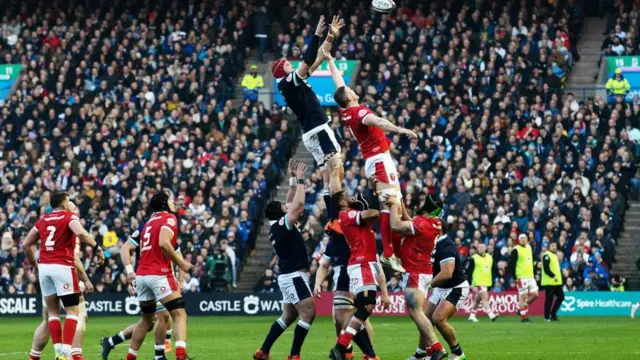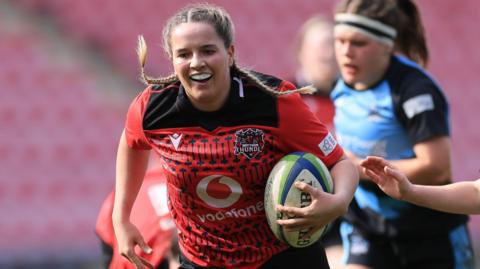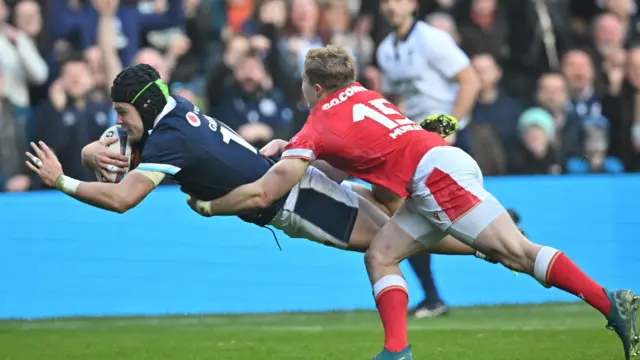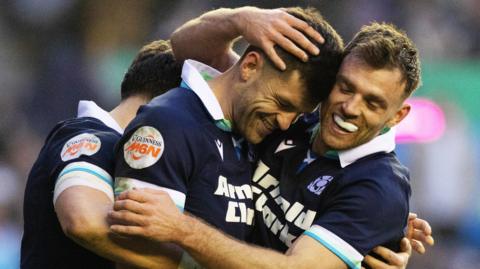Townsend's future & what does a successful Six Nations looks like?published at 19:17 GMT 13 March

BBC Scotland's chief sportswriter Tom English has been answering some of your Scottish rugby questions.
Graham asked: How much longer can Gregor Townsend stay on as coach? Scotland seem to be treading water and never getting higher than third place. 11 points in the Six Nations and a likely fourth place finish isn't good reading for the fans. Are two third place finishes good enough over Townsend's eight-year tenure?
Tom answered: I think people have a slightly over-inflated sense of how good this team is. Yes, the backline is absolutely outstanding, but the pack is decent without being exceptional.
Is this Scotland team better than France? No. Is it better than Ireland? No. So why do some expect Scotland to win a championship when there are two squads that are by some distance better than them?
Third would be a good finish for Scotland, second would be excellent, first would be unbelievable. I just don't think they're good enough across the board.
That tempers my view on Townsend somewhat. Should they have beaten England? Yes. Would two wins out of five be a let-down? Yes again. Townsend has one year left on his deal. I think he should be allowed to see it out in the hope that the return of Scott Cummings, Max Williamson, Sione Tuipulotu, Andy Onyeama-Christie and Josh Bayliss propels them higher in the Six Nations.
Matthew asked: What do Scotland have to do to make some real progression? Third place for the best Scottish team that we have seen since 1999 just isn't good enough.
Tom answered: I disagree with your evaluation of this Scotland team. This is the best backline Scotland have possibly ever had, but the pack of forwards (especially without Cummings, Williamson, Onyeama-Christie and Bayliss)...
Third place would be a good finish - the best of the rest behind two clearly superior teams in France and Ireland. Scotland need all of their main men fit to contend.
They need to grow up as a team and cut out the passages where they go to to sleep in games and they need better options at hooker and in front-row cover. They need a lot of things. They're not a championship-winning team no matter how much people think they are.



















